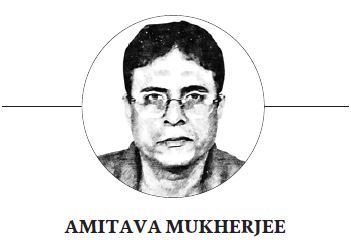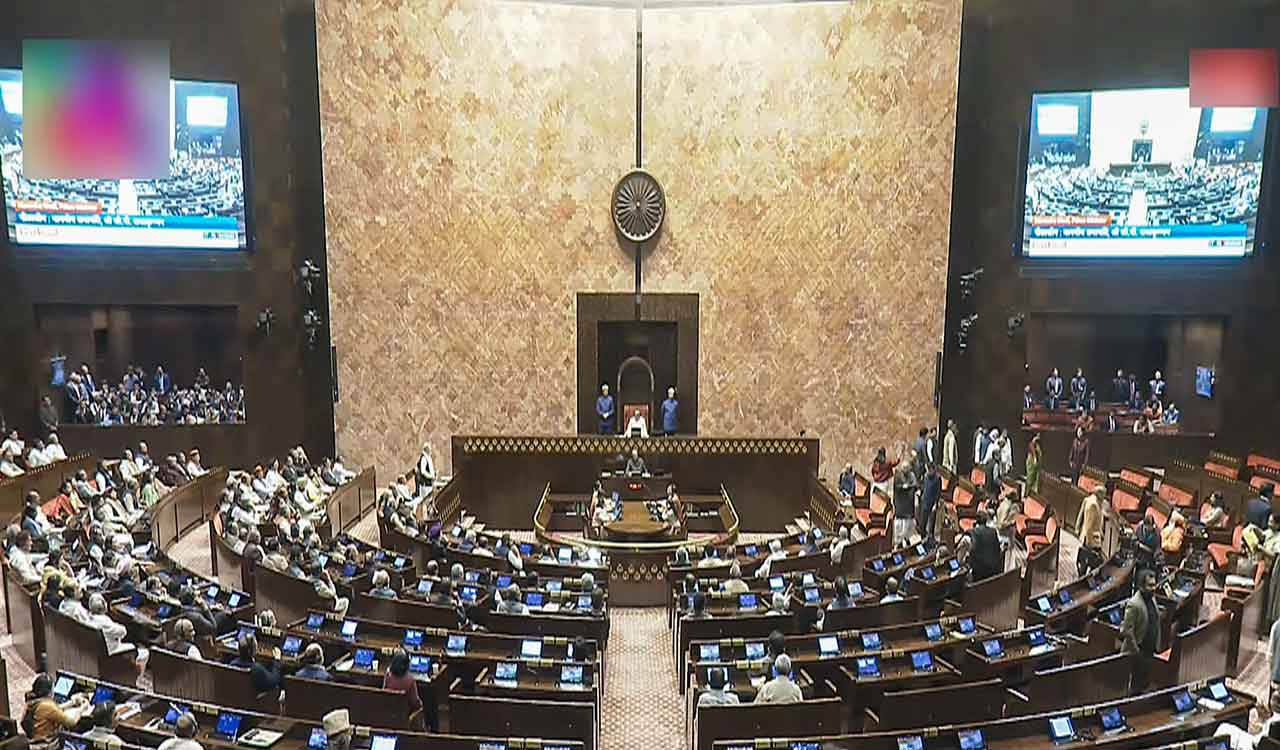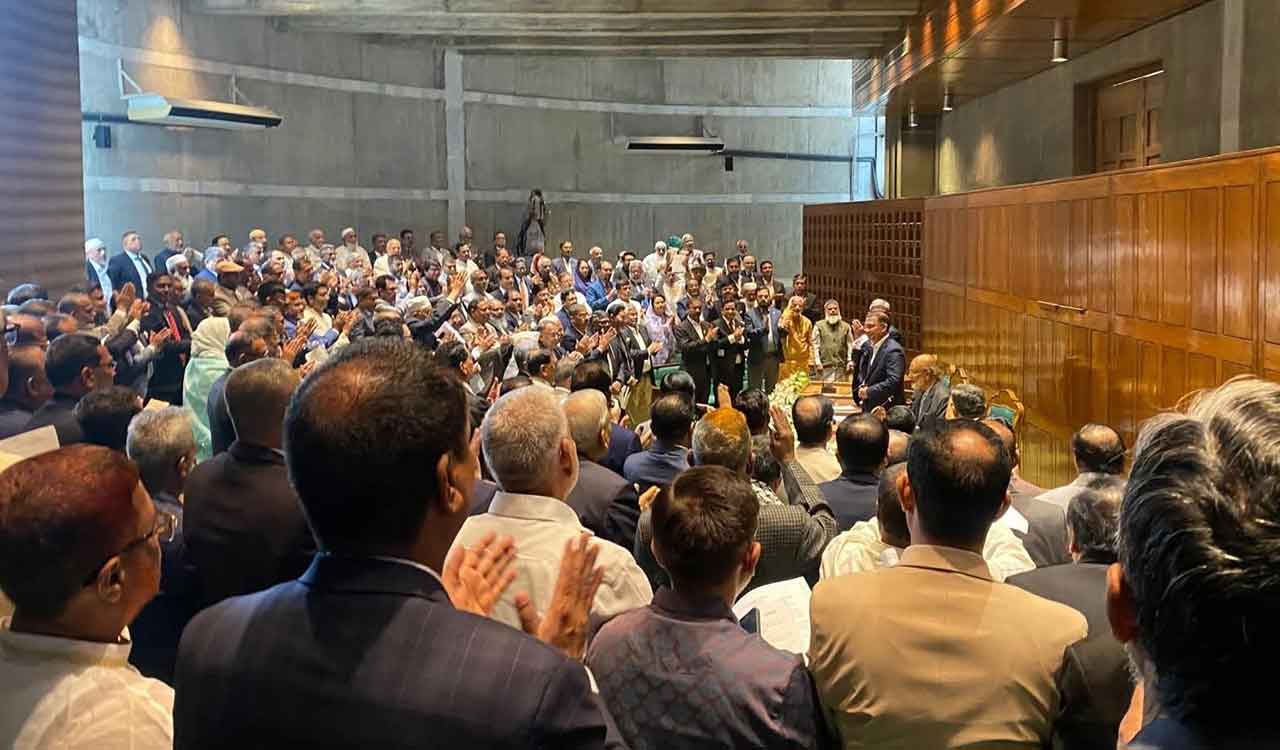Opinion: Yunus and his mission
India has reasons to be worried about Yunus’ statements as he is peeved at New Delhi’s closeness to Hasina

By Amitava Mukherjee
I blame India for having good ties with the wrong people. You have a policy towards Bangladesh. Please revisit your foreign policy. You congratulated people over an election which was never held — Muhammad Yunus prior to becoming the Chief Advisor of the Bangladesh government.
Muhammad Yunus has assumed power in Bangladesh riding on an anti-Awami League, anti-Hasina and anti-India mass upsurge. At this moment, it may not be unnatural for him to hold India responsible for propping up the Hasina Wazed-led government. He has also held out some open threats to India alluding, inter alia, that if New Delhi continues to support Hasina Wazed and tries to influence Bangladesh politics then there may be counter repercussions in India’s North-East and in West Bengal.
Yunus’ Arguments
Not a politician’s statement indeed as in the arena of foreign policy, threats do not count and everything is carried out with finesse. But Yunus is not a politician and he has admitted that politics is not his cup of tea. He is an economist and a development activist. He knows almost every nook and cranny of Bangladesh. By holding out the threat, he is perhaps echoing the sentiments of a section of Bangladeshi people however misplaced the argument may be. But on one point he is absolutely right: Indo-Bangladesh relations are now at a crossroads. Does India really need a revisit to her Bangladesh policy, as suggested by Yunus?
The knowledgeable opinion would say there is no need to do so, only some small repair jobs are necessary. The fulcrum of Indo-Bangladesh relations is the concept of Bengali nationalism which Yunus may not be well aware of as he was away from the soil of Bangladesh when the country’s liberation war was going on.
New Delhi’s Mistakes
New Delhi also committed some serious mistakes when Mujibur Rahman was in power in Dhaka. The first blunder occurred when Bangladesh was passing through a severe food shortage around 1973. It was man-made as black marketeers in Bangladesh shipped foodgrains to India for higher profit in collusion with the black marketeers on our side of the border. The government of India did virtually nothing to stop it. It brought untold miseries to the people of Bangladesh.
Mujibur Rahman was basically a rabble-rouser and he erred in political and administrative management thoroughly. As he was floundering on all fronts, New Delhi should have discreetly tried to keep an alternative leadership ready in case anything would have happened to Mujib. Subterranean signs of it were there as the army was gradually becoming restive. The best person for an alternative leadership from within the Awami League was Tajuddin Ahmad, a general secretary of the party who had capably piloted the liberation war from Calcutta. But Mujib, misguided by sycophants, sacked Tajuddin from his ministry. This was the most serious danger signal and India should have used her weight to force Mujib to reinstate Tajuddin. But New Delhi sat back. The ultimate result was the assassination of Mujibur Rahman.
Yunus’ Challenges
Muhammed Yunus is 84 years old and it is doubtful how best and for how long he can carry on. He has kept 27 departments with him. Given the questionable capacity of the Bangladeshi bureaucracy, it is open to doubt whether he would be able to do justice to any of the departments. Right now, the most crucial area would be his relations with the army. Yunus maintains a bad opinion about the armed forces. He considers them as chaotic. He is right on this count. The history of Bangladesh would prove it. But if his relations with the army deteriorate, then there may be a chance for a coup. After all, at the initial stage, the army chief had declared himself to be in command after Hasina Wazed had left the country. In this uncertain scenario, the shield for democracy would be the students.
Yunus is a trained economist and has good connections with American lobbyists the world over. Why was Hasina Wazed piqued with him is a matter of conjecture. At one point, Yunus had excellent relations with Hasina and the former’s Grameen Telecom was inaugurated from her Prime Ministerial office when the Bangladesh PM made the first call over Grameen Telecom. The most plausible reason behind the rupture between the two was perhaps Yunus’ decision to launch his own political party in 2007. Hasina had perhaps concluded that Yunus’ party would cut into the vote share of the Awami League. However, Yunus ultimately backtracked from launching any party.
Future will prove that Hasina should have been more tolerant while dealing with her opponents. She should have released an ailing Khaleda Zia from house detention and allowed her to go abroad for treatment. In the same vein, her government slapped 190 cases of law violation against Yunus. Can any person, and that too a Nobel Laureate, commit so many offences? The former Bangladesh Prime Minister did not stop there. She called Yunus ‘bloodsucker’, meaning one who fleeces the poor.
To be honest, there are murmurs of disapproval among the poor people of Bangladesh against Yunus’ Grameen Bank as sections of the hoi polloi think that the bank’s interest rate is too high although the bank has helped numerous people through its microcredit system. But calling him a ‘bloodsucker’ is definitely an exaggeration. He has shown the path of livelihood to a large number of Bangladeshi people. This will give him sustenance and strength as the Chief Advisor.
How long will he continue as the head of the new Bangladesh government? According to information, he and the student leaders have sought three to six years as their tenure. It is not known how has the President of Bangladesh reacted to it. But the BNP and the Jamaat have demanded an early election. These two parties are worried that if Yunus continues for a long time then their chance of coming to power will recede.
Right now India has reasons to be worried about Yunus’ public pronouncements. He is peeved at India’s closeness to Hasina Wazed. One thing is, however, sure. India is not at all ready to give Hasina any political asylum. But the longer Hasina stays in India, the bitter will be the relation between New Delhi and the new Bangladesh administration.
But Yunus has relations in West Bengal and has personal friends in Kolkata. His wife is from the Burdwan district of this State. Signals coming from New Delhi indicate that India is ready to extend her hands of friendship to the new Bangladeshi administration. It is now up to Muhammad Yunus to respond.

(The author is a senior journalist and commentator)
Related News
-
Grokepedia an unrealistic idea that won’t work: Wikipedia Co-founder at AI Summit
-
ECI announces schedule for Rajya Sabha biennial elections to fill 37 seats
-
Tarique Rahman elected BNP Parliamentary Party leader, to take oath as Bangladesh PM
-
Bill Gates’ AI Summit attendance uncertain, conflicting reports emerge
-
Opinion: MLA is not a Public Servant — justice lost in interpretation
14 mins ago -
Is it a crime to win majority of wards, Suman asks Vivek before arrest
31 mins ago -
Deer killed in road accident in Kothagudem
43 mins ago -
Speaker concludes hearing on disqualification petition against Danam Nagender
1 hour ago -
Consumers’ body wants BIS Standards Clubs set up in schools, colleges in Telangana
1 hour ago -
Telangana’s finances struggle over weak revenues and mounting debts
1 hour ago -
IIT Hyderabad to host MSME Tech Connect 2026
1 hour ago -
Khammam, Warangal police excel in Telangana Police Sports and Games Meet
2 hours ago




